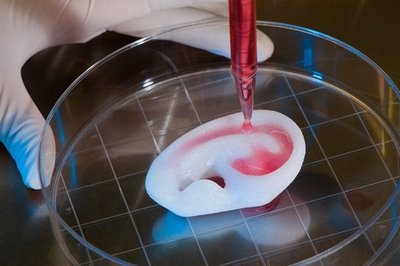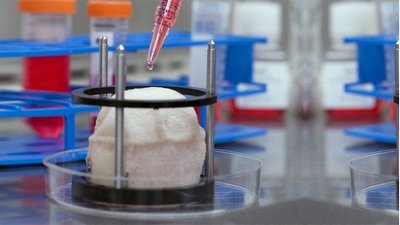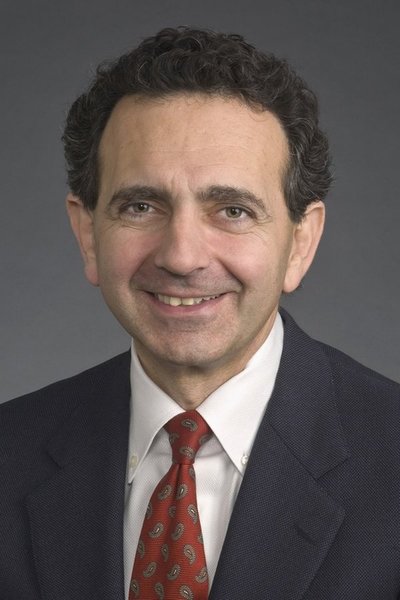February 25, 2010
Regenerative medicine pioneer Atala to give Rushmer Lecture
When your car’s fuel pump wears out, you don’t junk the car, you replace the pump and drive on down the road. Today, when people need replacement parts for their bodies, they have to either make do with a plastic or metal replacement device that temporarily extends life, or wait for someone else’s generosity or misfortune to make their organs available. For a century, doctors and scientists have dreamed of a time when new, tailor-made organs could be grown for their recipients. That time is at hand.
Dr. Anthony Atala, a pioneer in regenerative medicine, says constructed biological substitutes will restore and maintain normal function in diseased and injured tissues. Atala led the team that developed the first lab-grown organ, a bladder, to be implanted into a human.
Atala will discuss the promise of regenerative medicine at the 22nd Annual Robert F. Rushmer Lecture, 4:30-5:30 p.m., Friday, March 26, in Hogness Auditorium (HSB A-420) at the UW Health Sciences Center. A reception will follow from 5:45-6:45 pm in Foege North Lobby.
In his lecture, “Regenerative Medicine: New Approaches to Health Care,” Atala will review recent advances in the field and describe applications of new technologies that may offer novel therapies for patients with end-stage tissue and organ failure.
As the population ages, the availability of donor organs for transplant diminishes, Atala says. But scientists in regenerative medicine and tissue engineering are learning to apply the principles of cell transplantation, materials science, and bioengineering to construct biological substitutes.
Nuclear transfer and other sources of stem cells, such as those derived from amniotic fluid and the placenta, offer a potentially limitless source of cells for tissue engineering applications. The rapidly advancing stem cell field is opening new options for therapy, according to Atala.
He is the W. H. Boyce Professor and Director of the Wake Forest Institute for Regenerative Medicine, chair of the Department of Urology at Wake Forest University School of Medicine, and a practicing pediatric urologist at Wake Forest University Baptist Medical Center in Winston-Salem, N.C. He also is an associate professor of bioengineering at Virginia Tech University.
Atala’s institute is working to develop more than 22 different organs and tissues, including insulin-producing cells and engineered blood vessels for heart bypass surgery. His work is also being applied to war injuries through a federally funded initiative. A project to engineer a human ear was covered this past March on the CBS program, “60 Minutes.” (watch video) . He also was featured by U.S. News and World Report in a June 30, 2009, article, “Grinding out new organs one at a time.”
The annual lecture honors Dr. Robert F. Rushmer, who founded the UW Center for Bioengineering in 1967. The center later grew into the UW Department of Bioengineering, jointly administered by the UW College of Engineering and the UW School of Medicine. An extraordinary pioneer, mentor, and leader, Rushmer had a vision to establish a place where many different disciplines work together towards a common goal of providing an improved quality of life for all.
The lecture is free and open to all.
For more information contact Shirley Nollette 206.685.2002.



